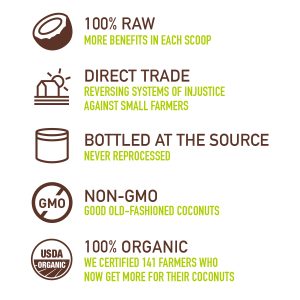In a world increasingly conscious of health and environmental sustainability, the spotlight is turning towards plant-based diets as a source of nourishment that not only supports personal well-being but also contributes significantly to the health of our planet. The benefits of incorporating more plant-based foods into our daily diet extend beyond personal health, touching on environmental conservation, ethical considerations, and global resource sustainability. In this article, we explore the key advantages of embracing a plant-based lifestyle, shedding light on the positive impact it can have on individuals and the world at large.
1. Enhanced Nutritional Intake:
One of the primary benefits of incorporating plant-based foods is the rich array of essential nutrients they provide. Fruits, vegetables, nuts, seeds, and legumes offer a plethora of vitamins, minerals, antioxidants, and fiber that contribute to overall health. A diet abundant in these plant-based sources can help reduce the risk of chronic diseases and promote longevity.
2. Reduced Risk of Chronic Diseases:
Numerous studies have shown that a plant-based diet can lower the risk of chronic diseases such as heart disease, diabetes, and certain types of cancer. The absence of saturated fats and cholesterol in plant-based foods promotes cardiovascular health, while the high fiber content aids in maintaining stable blood sugar levels.
3. Weight Management and Improved Digestion:
Plant-based diets are often associated with weight management and improved digestion. The high fiber content in fruits, vegetables, and whole grains helps with satiety, reducing the likelihood of overeating. Additionally, fiber supports a healthy digestive system, preventing constipation and promoting gut health.
4. Ethical Considerations:
Choosing a plant-based diet aligns with ethical considerations related to animal welfare. Many people opt for plant-based living as a compassionate choice to reduce their contribution to the environmental impact of industrial animal farming. By embracing plant-based foods, individuals can make a positive difference in reducing the demand for factory-farmed products.
5. Environmental Sustainability:
Perhaps one of the most compelling reasons to adopt a plant-based lifestyle is its positive impact on the environment. Animal agriculture is a significant contributor to deforestation, greenhouse gas emissions, and water pollution. Shifting towards plant-based diets reduces the environmental footprint associated with food production, making it a sustainable choice for a planet facing increasing ecological challenges.
6. Lower Carbon Footprint:
The production of plant-based foods generally has a lower carbon footprint compared to animal-based products. Livestock farming contributes significantly to greenhouse gas emissions, deforestation, and land degradation. By choosing plant-based alternatives, individuals can actively participate in mitigating climate change and supporting a more sustainable future.
7. Conservation of Water Resources:
Animal agriculture is notorious for its high water consumption. A plant-based diet requires significantly less water to produce, contributing to the conservation of this precious resource. By choosing plant-based foods, individuals play a role in responsible water management, especially in regions facing water scarcity.
8. Biodiversity Preservation:
The expansion of agricultural land for animal farming often leads to deforestation and habitat destruction, threatening biodiversity. Adopting a plant-based diet reduces the demand for such practices, contributing to the preservation of ecosystems and the protection of endangered species.
9. Reduced Pollution and Waste:
Animal agriculture is a major contributor to water and air pollution, as well as soil degradation. Plant-based diets generate less pollution and waste, as they typically involve fewer chemical inputs, antibiotics, and harmful runoff associated with industrial farming practices.
10. Global Resource Efficiency:
A shift towards plant-based living promotes global resource efficiency. Plant-based foods generally require less land, water, and energy to produce compared to raising livestock. This efficiency is crucial in a world grappling with increasing population demands and the need to sustainably manage finite resources.
In conclusion, the benefits of incorporating more plant-based foods into our diet extend far beyond personal health. A plant-based lifestyle aligns with ethical considerations, contributes to environmental sustainability, and addresses global resource challenges. As individuals, by making mindful choices about the food we consume, we have the power to positively impact our well-being and the health of the planet we call home. Embracing a plant-based diet is not just a dietary choice; it’s a conscious decision towards a healthier, more compassionate, and environmentally responsible way of living.

















